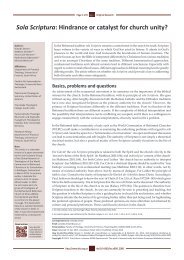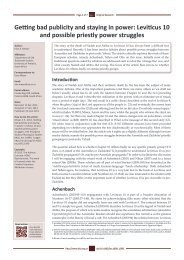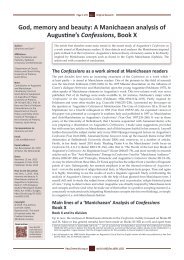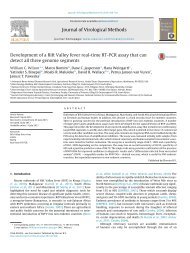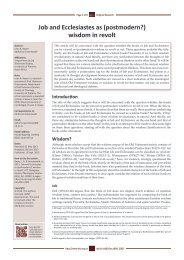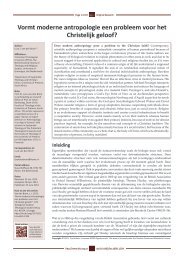You also want an ePaper? Increase the reach of your titles
YUMPU automatically turns print PDFs into web optimized ePapers that Google loves.
CHAPTER XXII.<br />
THE AFRICAN ELEPHANT.<br />
"On comes the elephant, to slake<br />
His thirst, at noon, in yon pellucid springs.<br />
Lo I from his trunk up. turned, al<strong>of</strong>t he flings<br />
The grateful shower: and now,<br />
Plucking the broad-leaved bough<br />
Of yonder plume, with waving motion slow<br />
Fanning the languid air,<br />
He waves it to and fro."<br />
THROUGHOUT the more remote and unfrequented portions <strong>of</strong> the African continent which have yet been explored, the<br />
Elephant, mightiest and most peaceful <strong>of</strong> all the denizens <strong>of</strong> the woods, has been found in far greater abundance than 1n any<br />
other quarter <strong>of</strong> the globe.<br />
Many <strong>of</strong> the southern regions are still teeming with vast herds; and the unwholesome, though<br />
fertile borders <strong>of</strong> the almost inaccessible rivers on the eastern and western coast, have ever formed its chosen habitat.<br />
Since<br />
the first establishment <strong>of</strong> the Portuguese settlements about the close <strong>of</strong> the fifteenth century, man has waged against this<br />
lordly animal, a ruthless and exterminating war.<br />
Hunted and persecuted for the sake <strong>of</strong> its costly ivory, it has been driven<br />
further and further from the haunts <strong>of</strong> civilization, and is only now to be found in multitudes, amid regions to which its<br />
arch enemy seldom penetrates. Delighting especially in wide and secluded savannahs, where sluggish streams are skirted by a<br />
congenial vegetation, this giant among quadrupeds resides towards the southern tropic in stately troops, compnsmg many<br />
hundred individuals.<br />
There, fearless <strong>of</strong> danger, he wanders with calm solemnity amid the groves <strong>of</strong> aged mimosas, with which<br />
the broad meadows are sprinkled -leisurely prizing out <strong>of</strong> the ground, by means <strong>of</strong> his huge tusks, used upon t~e<br />
principle<br />
<strong>of</strong> the crow-bar, those which please him best, and inverting them with his single hand, the more readily to browse upon the<br />
,<br />
s<strong>of</strong>t and juicy roots that constitute his favourite food. Social in habits, and secure in his own strength from every four-footed<br />
foe, the wisest <strong>of</strong> brutes luxuriates in the waters <strong>of</strong> the lone stream that be has troubled, and, unless when man invades his<br />
repose, passes a lengthened life <strong>of</strong> tranquil enjoyment.<br />
" Calm amid scenes <strong>of</strong> havoc, in his own<br />
Huge strength impregnable, the Elephant<br />
Offendeth none, but leads a quiet life,<br />
Amongst his own contemporary trees,<br />
Till nature lays him gently down to rest<br />
Beneath the palm which he was wont to make<br />
His prop in slumber.• There his relics lie,<br />
Longer than life itself had dwelt within them.<br />
Bees in the ample hollow <strong>of</strong> his skull<br />
Fill their wax citadels, and store their honey.<br />
Thence- sally forth to forage through the tlelds,<br />
And swarm in emigrating legions thence.<br />
The little burrowing animals throw up.<br />
Hillocks beneath the over-arching ribs ;<br />
While birds within the spinal labyrinth<br />
Contrive their nests."<br />
With the image <strong>of</strong> the Elephant we are apt to associate the idea <strong>of</strong> the gorgeous and stupendous vegetation <strong>of</strong> an<br />
Indian forest- to imagine trees <strong>of</strong> a growth and foliage proportioned to the bulk <strong>of</strong> the gigantic tenants which they screen.<br />
Such at least was my own impression, and I was therefore not a little amazed to find countless herds inhabiting the most<br />
open tracts, embellished with occasional straggling woods, so stunted in growth, that a host <strong>of</strong> colossal backs were not unfrequently<br />
to be seen above the tops <strong>of</strong> them.<br />
The face <strong>of</strong> the verdant hills, that in time <strong>of</strong> danger form the strong-hold <strong>of</strong><br />
the species, usually terminate in an abrupt scarp, resembling a coronet, whence a number <strong>of</strong> ravines arising, are encumbered<br />
with rocks and precipices o'ershadowed by heavy forests- the intervening rounded space being quite destitute <strong>of</strong> trees.<br />
Through the denser covert, in parts impervious to man, the monstrous inmates have cleared many a path that would do credit<br />
.<br />
to the pioneers <strong>of</strong> an army, and even by them would not have b~en accomplished without infinite labour. Marching<br />
* Amongst many other early absurdities, it was currently believed <strong>of</strong> the Elephant, thnt he invariably slept in a standing posture, leaning against a tree<br />
for support. Sir T. Brown, in allusion to this popular notion, remarks, that "it sleepeth against a tree; which the hunters observing, do saw it almost asunder;<br />
whereon the beast relying, by the fall <strong>of</strong> the tree falls also down itself, and is able to rise no more."<br />
Digitised by the <strong>University</strong> <strong>of</strong> <strong>Pretoria</strong>, Library Services, 2013



